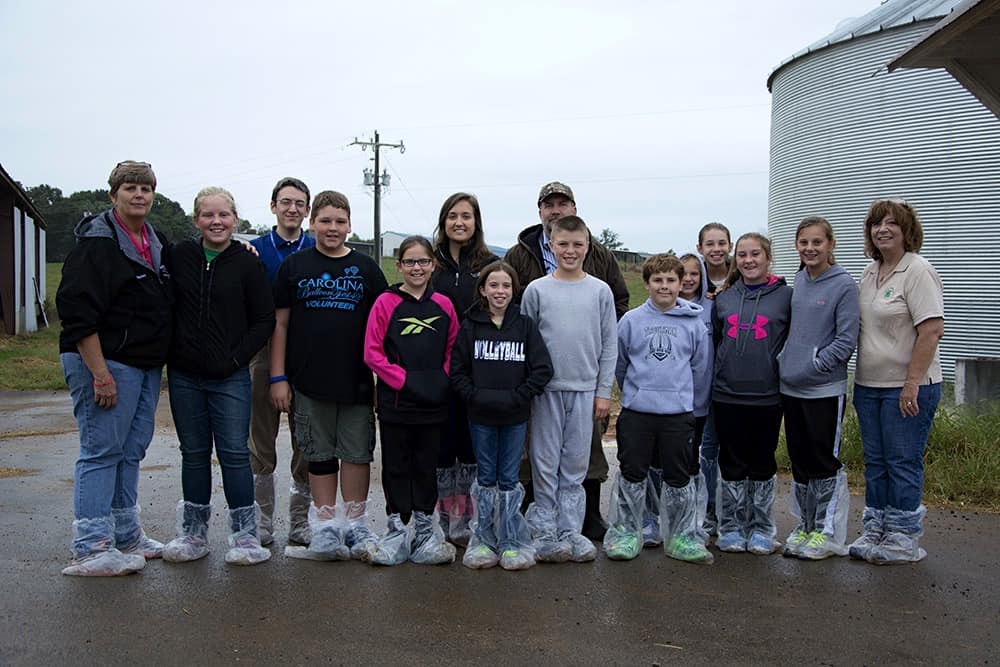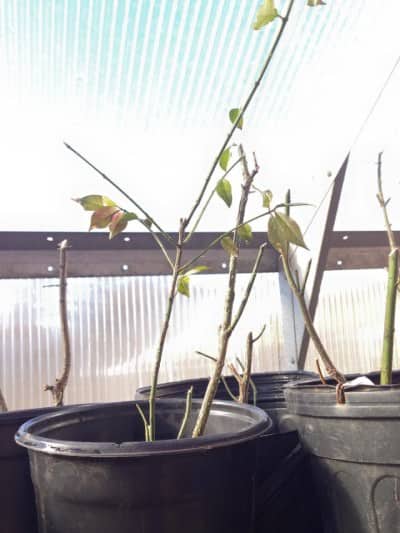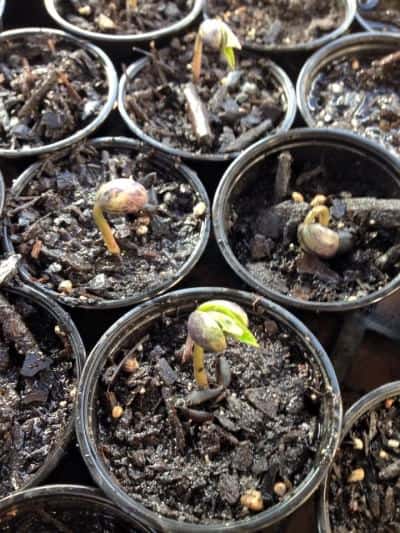
“Tell me and I forget, teach me and I remember, involve me and I learn,” said Benjamin Franklin. This quote informs all that I do with my sixth grade students at Northview School, an International Baccalaureate (IB) World School in Statesville.
I quickly learned as an educator that I was instructing students who would change the world around them in some way. All they need is confidence in their abilities and the correct tools in which to apply their knowledge to something greater.
 With that in mind, this year I decided to build a school garden with our middle schools students. It has been an experience like no other.
With that in mind, this year I decided to build a school garden with our middle schools students. It has been an experience like no other.
My career as a teacher of agriculture began this past summer when I was selected as a Kenan Fellow supported by the Iredell County Farm Bureau. I had no prior knowledge about the industry of agriculture, and my teaching strategies rarely reflected the skills needed in this field.
After being selected, I spent each week working at farming locations around Iredell and Alexander counties. I worked with dairy farmers, poultry operation managers, seed production operators, beef cattlemen, crop farmers, and many others. I was on a farm daily, spending time soaking up the new found knowledge that these professionals were willing to share with me.
I quickly realized the disconnect between the local public school classroom and the farm. My students had limited knowledge about an industry that supports over 12,000 jobs in our shared community each year. My students were living in farming territory, yet many of them had no clue where their food came from and who produced it.
As a teacher led by a philosophy of creating life-long learners, I had to do something.
I started the current school year with a new focus, including a revised curriculum that included agriculture and an afterschool club that focused on farming food for the future.
Each week, 25 students gather in my classroom for our Agriculture Education Club. A constant chatter and buzz fills my classroom with students asking, “what are we working on today,” “whose turn is it to water,” and “have our new seedlings sprung yet?” For those of you that haven’t been in a classroom recently, this is not the typical instructional dialogue between student and teacher.
Instead, this is hands-on learning at its best. The students are asking for more time in the club each week with bigger, better food projects. These students, ages eleven to fourteen, are being inventive in the ways they are creating alternative methods to grow food and reflective in their practice each time something is produced. Our “mess-ups” are to be expected and celebrated…true teachable moments.
On our campus, we are working in a renovated greenhouse that sat dormant for decades. The greenhouse was in no condition to grow anything when we first started. The screen door was falling off its hinges, the wooden frame rotting, and the fiberglass brittle and punctured.
I reached out to my local school board and administrators in my school and district to ask to refurbish the greenhouse. After several presentations, they honored my request by installing new panels, a heating system, and replacing the door. Our space transformed from a dilapidated vacant structure to a vibrant second classroom for my students.
 We quickly filled it with 75 black bean seeds that will eventually produce bushes for us to share with our school community. The students experienced the process of germination from start to finish and currently care for these stalks. They understand crop rotation, avoiding greenhouse effect, and how much water seedlings require. My students are learning about food production first hand. Hands full of dirt, water stains on their clothing, and the largest smiles you can imagine.
We quickly filled it with 75 black bean seeds that will eventually produce bushes for us to share with our school community. The students experienced the process of germination from start to finish and currently care for these stalks. They understand crop rotation, avoiding greenhouse effect, and how much water seedlings require. My students are learning about food production first hand. Hands full of dirt, water stains on their clothing, and the largest smiles you can imagine.
Our school garden really began to grow when a sponsor, Joseph Pentzak, secured a Going Local Grant from the North Carolina Farm Bureau. With the $500, we purchased supplies and equipment to furnish the greenhouse with enough seeds to supply snacks for our after-school programs. The students in the club will be leading the march towards healthy, local food production with a focus on “farming for our future.” The long-term goal is to incorporate a portion of our crops into the school cafeteria. As a result of our focus on the future, our community members are supportive of our vision.
I get a constant stream of phone calls, emails, and inquiries about how our local farms can support our gardening project. I am overwhelmed with all my farming community is willing to do and give for our club and most importantly our students. For example, my students worked with a farmer to take a soil sample to pick the best spot to build a raised-bed garden.
Our Agriculture Education Club is providing work force training for students at a time in their lives when we don’t even expect students to be thinking about their future careers. My students are making investments now that will provide dividends well into their future.
Our school garden is teaching by doing, remembering by being engaged, and success continues through our innovations. What could a school garden do for you?
Students comment on school gardens
My students were asked to reflect on what we are doing with our school garden, why we we are doing it, and what it is doing for our school.
“A school garden is important at Northview because we can grow food for our cafeteria. What I have learned about gardening from doing agriculture club is that there is a thing of too much water. But mostly is that a plant is like a child you have to treat it good so that it can make you proud. What I want to share with other classmates is that just by getting dirt, a seed, and a little bit of water you can grow something that can change the world! One thing that I would like to say is that everyone should learn how to garden and know what agriculture does for our beloved world.”
-Katie Gertsell, sixth grade student“A school garden is important at Northview because kids need to understand the importance of agriculture and everything it does for us. I have learned about how to take care of all of the plants and how to plant them. I have also learned the importance of agriculture because it is the base of our civilization. It gives us food and oxygen which we need to survive. I would like to share why we need agriculture and I would like to teach other kids how to plant and take care of plants.”
– Jacsyn Beane, sixth grade student“A school garden is important for Northview because we will be able to provide good foods for students and we will earn service hours while helping take care of the garden. The things I have learned about gardening is that you need to watch the growth because if you can keep track of how much the plant grows a week or month you will be able to know when the food is ready to be picked. Also I’ve learned you need to water the plants every other day and move them around to get good sunlight. The things I would like to share with my other classmates is that our greenhouse is not just some plants we have to water. They are important to our community and school. For instance, the foods we plant are healthy foods and we all have different parts to help take care of the plants and care for them.”
-Kendall Reese Thompson, sixth grade student“A school garden is important at Northview because it allows kids to be introduced to agriculture. I have learned that in order to have a healthy garden you have to give the plants the right amount of water, fertilizer, dirt, and sunshine. I want to teach them about how you can sign up to help keep our school garden running good and also tell them about how they can start one at home.”
-Laurel Gray, sixth grade student“A school garden is important at Northview because it provides many opportunities such as providing extra food for our school and also the people who need it. Food is an essential element of life and therefore a school garden would be great in many ways. I learned many things, even though I didn’t start out on a farm like the rest of my AG club classmates did. I learned new ways to plant, including planting seeds with no soil or even no sunlight. It has been a great experience for a girl that doesn’t really go outside that much. I want to teach my classmates how to operate the greenhouse so we have many more other individuals to help the greenhouse. It will provide many other helping hands.”
-Anna Vu, student
